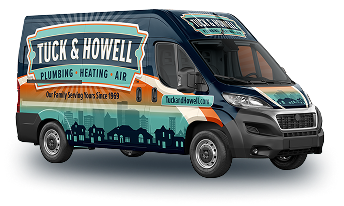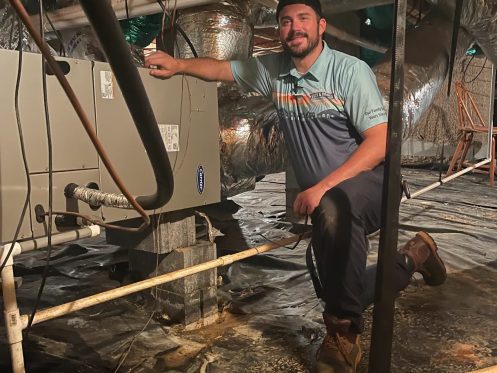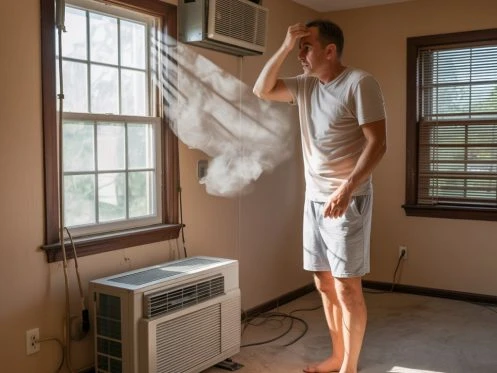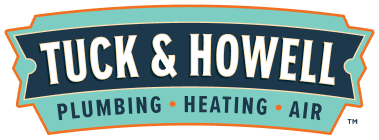Serving Greenville & Surrounding Areas
Common Winter Plumbing Issues And When To Call A Professional
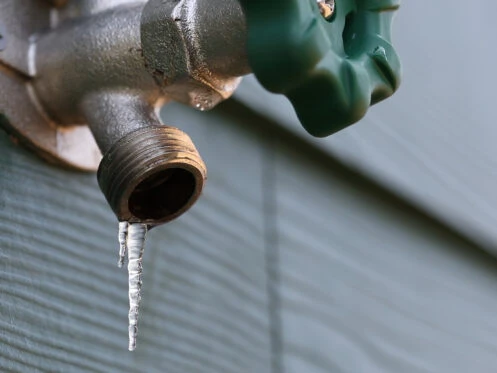
Winter can put additional strain on household systems, and plumbing is no exception. As temperatures begin to drop, homeowners can encounter a range of plumbing problems caused by freezing weather, strain on aging fixtures and pipes, and increased indoor water use.
Many of these issues can be simple inconveniences while others can result in serious problems that require costly solutions. Understanding common winter plumbing problems can help you prepare for the colder months and ensure your plumbing system is ready for winter.
Frozen Pipes
Frozen pipes are one of the most common winter plumbing issues. When the water inside pipes freezes, it often expands, which puts enormous pressure on the walls of the pipes. If too much pressure builds up, the pipes can burst, leading to water damage and flooding in your home.
Frozen pipes are more prevalent in areas not well-insulated, such as attics, exterior walls, and basements. Plumbing exposed to freezing temperatures, such as outdoor fixtures, are at a much higher risk of freezing. Homeowners can reduce the risk of their pipes bursting by insulating exposed pipes, allowing faucets to drip slightly during extreme cold, and maintaining consistent indoor temperatures.
Clogged Drains
Drains can clog during the winter, leading to a host of plumbing problems. During the holidays, many households experience an increase in entertaining and cooking. This increase in activity often results in more food scraps, grease, and other debris being washed down the kitchen drain. As time goes by, this debris can build up and cause blockages. In colder weather, fat and grease poured down the sink can solidify more easily and quickly, making the problem worse.
In addition to kitchen drains, drains in bathrooms can clog due to an increased use of sinks and showers. Hair, soap scum, and other particles can accumulate in the pipes, leading to complete blockages or slow draining. For this reason, you should be mindful of what you put down your sink this winter.
Sewer Line Damage
During the winter, extra pressure may be placed on your plumbing system due to holiday activities. This results in additional stress on sewer lines. When more people are utilizing a plumbing system, the chance of backups or clogs in the sewer line greatly increases.
This can be especially problematic if the sewer line of your home is old or has been damaged in the past. Tree roots, which seek out moisture in the soil, can invade your sewer line and cause a blockage. Colder temperatures can also cause the soil to shift, which can damage underground pipes.
Common signs of sewer line problems include slow drains, foul odors coming from drains, and gurgling sounds coming from plumbing fixtures. If these issues are left unattended, they can cause sewer backups, which are costly and unsanitary. You can prevent this from happening to you by scheduling regular maintenance and inspections.
Water Heater Malfunctions
Water heater malfunctions occur more frequently during winter. Cold weather often causes water heaters to work harder, causing them to struggle to meet a household’s hot water needs. This added strain can cause water heaters to wear out quickly, resulting in leaks, complete failure, or reduced efficiency. Occasionally, sediment can build up in the tank, which makes the problem worse since it reduces the water heater’s ability to heat water properly.
Homeowners may notice their water isn’t getting as warm as usual or they are running out of hot water faster than usual if their water heater isn’t working correctly. Routine maintenance, such as inspecting your water heater for signs of wear and tear can go a long way, but if you can’t determine the cause of your water heater problem, it may be time to call a professional.
Sump Pump Damage
Sump pump failure is another problem that can arise during the colder months, especially in areas with heavy rain or snowfall. Sump pumps are engineered to prevent flooding by removing excess water from crawl spaces or basements. Cold weather, however, can cause the sump pump discharge to freeze, which prevents the sump pump from working properly. If the pump cannot adequately remove water, flooding can happen, leading to water damage and extensive mold growth.
Homeowners can lower the risk of sump pump damage by ensuring their discharge line is clear of debris and properly insulated. A professional can regularly test your sump pump before the winter months to make sure it is free of major issues before winter arrives.
Problems With Outdoor Plumbing Fixtures
The plumbing fixtures on the exterior of your home can be affected by colder temperatures. Outdoor plumbing, such as sprinkler systems, garden hoses, and exterior faucets, is particularly vulnerable to cold temperatures. If you don’t adequately winterize these fixtures, water left in the pipes can freeze and expand, causing the pipes to burst. This can result in water leaks that go unattended until the warmer months arrive, resulting in costly repairs.
Another outdoor plumbing problem that can occur during winter is frozen septic tanks. In extremely cold environments, the ground can freeze to a depth that impacts underground septic systems. If a septic tank or its pipes freeze, wastewater won’t be able to properly flow, leading to a backup or greater damage to the system. To prevent this from occurring, you can hire a professional to insulate the area around the septic tank.
Older Plumbing System Issues
Older homes tend to have older plumbing systems, and cold temperatures can exacerbate existing problems with pipes and fixtures. For example, pipes made from certain materials, such as galvanized steel, are more prone to corrosion over time. In winter, the metal can get brittle and crack or leak.
Other fixtures, such as faucets, toilets, and showerheads, can wear out more quickly due to the added strain of increased water usage during the colder season. Running toilets and leaking faucets can cause your home to waste a significant amount of water, which can drive up your utility bills. Making timely repairs and scheduling regular inspections of your aging plumbing system can prevent problems before they escalate.
Changes in Water Quality
In addition to the physical impact of cold weather on plumbing systems, winter can also come with changes in water quality. In some areas of the country, colder temperatures can cause pipes to contract, which can allow minerals and other particles to build up in the water. This can cause discolored water or water that doesn’t taste the same. Cities and other municipalities may also adjust their water treatment processes during the colder months, which can impact your water’s chemical balance.
Schedule Service Today
As you can see, winter brings a unique set of challenges for homeowners and their plumbing systems. From malfunctioning water heaters to frozen pipes, winter can put more strain on all of your plumbing components. Fortunately, Tuck & Howell, Inc. a reliable plumbing company in Simpsonville, SC, can help you with your winter plumbing issues.
We serve Greenville, SC and the surrounding area and would be more than happy to meet your home’s plumbing needs. Our plumbing professionals take great pride in providing prompt and affordable service. We also have a team of HVAC technicians ready to provide cooling, heating, and indoor air quality solutions for your home. Reach out online or call us today to schedule service, like leak detection.
Services We Offer Include:
- AC Company
- AC Repair
- AC Installation
- AC Maintenance
- Plumbing Repair
